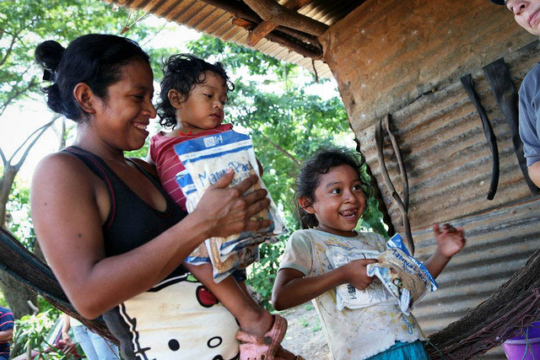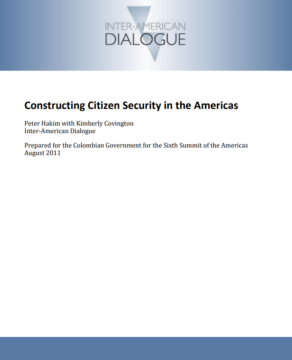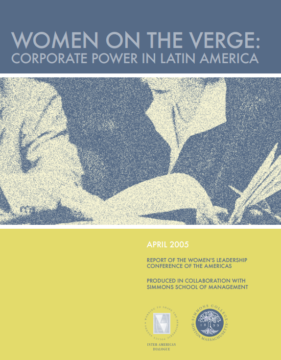Implementation of Educational Reforms
Improving the performance of educational institutions is indispensable for promoting socioeconomic development, reducing inequalities and increasing economic competitiveness .
Improving the performance of educational institutions is indispensable for promoting socioeconomic development, reducing inequalities and increasing economic competitiveness .
Improving education requires persistence, dedication and teamwork. Progress is the consequence of multiple factors that interact and reinforce each other systematically. Studies and assessments usually yield mixed results, and that makes it difficult to discern what needs to be changed. There are no simple recipes. Furthermore, since the financial costs…
A partir de la publicación de Una Nación en Riesgo, una lluvia de informes y declaraciones ha alimentado la percepción popular de que el sistema de educación norteamericano se encuentra en crisis1. La disminución a lo largo del tiempo, tanto real como imaginaria, en el desempeño en pruebas como el…
Las pruebas de desempeño son uno de los “temas candentes” en la agenda de la reforma educativa — y por buenas razones. Las pruebas de desempeño son una medida más precisa de la capacidad de nuestros niños de lograr las aspiraciones que tenemos para ellos que las formas convencionales de…
Throughout Latin America, a digital divide has emerged.
If it is true that persons with similar characteristics are paid less when they teach than when they take other jobs, then why dothey go into the teaching profession: who are the teachers?
This report analyzes the 4+1 project undertaken by migrant HTAs along with the Mexican federal, state and municipal governments and Western Union.
Education links the past with the future . It communicates the heritage of previous generations in the light of the demands of tomorrow’s world . Knowledge transmitted from school expresses this double movementas well: it summarizes a legacy and anticipates possibilities. What happens, however,when the story takes a turning point intotomorrow’s uncertainty?
Desde los años ’70, un considerable número de países han realizado esfuerzos por la descentralización educacional. Buscando mejorar los servicios administrativos, aumentar la calidad de la educación, compartir el poder con la ciudadanía local y acelerar el ritmo de desarrollo nacional, este verdadero movimiento mundial se basa en una premisa…
The aim of the Accelerated Schools Project is to create schools that provide enriched and accelerated learning opportunities to all students throughout the curriculum. In this report,we evaluate the first decade of the implementation of this Accelerated Schools Project, which began as two pilot schools in 1986 and by 1996…
Most of Jamaica’s children attend school at least through lower secondary, and the country has a robust assessment system, which incorporates both national and school-based assessment. However, low test scores at all levels of the Jamaican education system suggest that there are gaps in the system that negatively impact the learning outcomes of many students.
Dos experiencias centroamericanas demuestran que un buen programa de autogestión escolar puede ser una eficaz alternativa para aumentar la cobertura educacional en áreas rurales pobres. El Programa con Participación de la Comunidad — EDUCO— en El Salvador, y el Programa Nacional de Autogestión para el Desarrollo Educativo —PRONADE— en Guatemala,…
Public security is today the issue that most troubles the citizens of nearly every country of Latin America and the Caribbean.
Research shows that what is good for women is good for business organizations as a whole, especially for organizational leadership.
In collaboration with the Partnership for Educational Revitalization in the Americas (PREAL), the Latin American Faculty of Social Sciences (FLACSO) in Guatemala designed and implemented the project “Supporting Informed Dialogue on Second- Generation Education Policy Reforms” from 2008-2010. Through studies, workshops, discussions, consultations, and other ways of raising awareness and…


